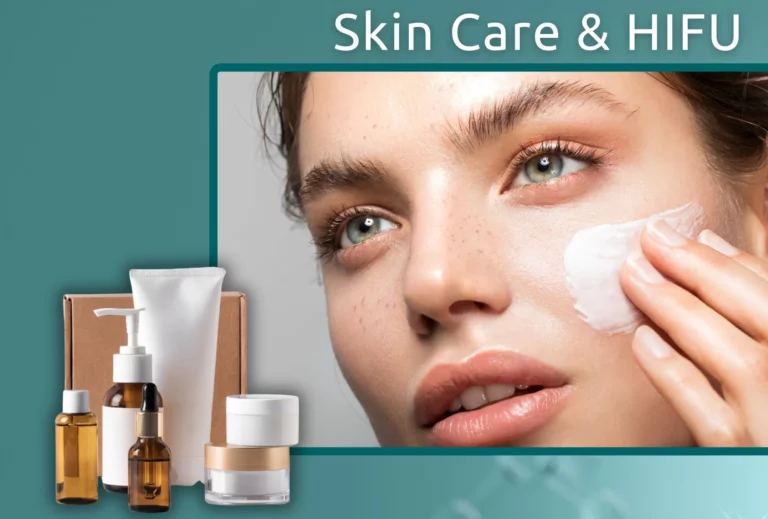As we age, collagen levels in the body decrease, leading to the appearance of fine lines, loss of elasticity, and sagging skin. Fortunately, there are both natural ways to stimulate collagen, and proven aesthetic procedures, which enhance its synthesis and improve the appearance of the skin.
Cosmetic procedures to stimulate collagen:
1. Radiofrequency therapy (RF)
This non-invasive procedure uses radio waves to heating of the dermis, which leads to skin tightening and stimulation of collagen synthesis. It is suitable for correcting sagging contours of the face and neck.
FDA: Radiofrequency for skin tightening
2. Microneedling (Dermapen)
The procedure uses microneedles that create microtraumas in the skin and activate the natural recovery processThis leads to the formation of new collagen and improved skin texture.
Dermapen: Microneedling & Collagen Induction Therapy
3. Laser procedures (Fraxel and CO2 laser)
They work by causing controlled damage to the surface and deeper layers of the skin. The regenerative process stimulates collagen production. Lasers are suitable for more mature skin and significant wrinkles. They are suitable for treating scars, fine lines and sun damage.
4. Plasma therapy (PRP)
Uses own plasma enriched with growth factorswhich promote skin regeneration and stimulate neocollagenesis.
PRP Therapy and Skin Rejuvenation - Cleveland Clinic
5. LED phototherapy (red light)
Red light (around 630–660 nm) penetrates the dermal layer and activates mitochondria in cells. This leads to increased collagen production and improved cellular repair.
6. Lower intensity ultrasound (non-HIFU devices)
While they don't reach the depth of HIFU, some home-use ultrasound devices also stimulate microcirculation and maintain skin tone.
Collagen-stimulating cosmetics
With properly selected cosmetics, you can support collagen synthesis and prolong the effects of the procedures. To maintain the results of the procedures and home care, choose cosmetics with the following active ingredients::
- Topical retinoids (Retinol, Retinaldehyde, Tretinoin) – Promote cell renewal and stimulate collagen synthesis. They require regular use and gradual adaptation of the skin.
- Vitamin C – in stabilized form (ascorbic acid) is effective for brightening the complexion and increasing collagen activity.
- Peptide serums and creams – Some peptides (such as Matrixyl, Copper peptides) mimic natural signals for collagen synthesis. A good complement to non-invasive therapies.
- Hyaluronic acid – deeply moisturizes and promotes skin elasticity.
- Niacinamide (vitamin B3) – improves barrier function and contributes to smoother and firmer skin.
Natural methods to boost collagen
Diet rich in collagen-supporting nutrients:
- The food plays a key role in the body's natural production of collagen. Here are some vitamins and minerals that support this process:
- Vitamin C – a key cofactor in collagen synthesis. Found in citrus fruits, strawberries, kiwi, peppers, and broccoli.
- Zinc – a mineral that is involved in tissue regeneration and supports the immune system. Found in oysters, meat, nuts, and seeds.
- Sulfur – participates in the synthesis of amino acids necessary for the construction of collagen. It is found in garlic, onions, eggs and cabbage.
- Antioxidants – foods rich in vitamins A, E and polyphenols protect the skin from oxidative stress and slow down the breakdown of collagen fibers. The foods with the highest content of polyphenols are blueberries and berries, pomegranate, apple and cherry. Foods rich in vitamins A, E and polyphenols include a variety of fruits, vegetables, nuts, seeds.
- Additives
- Taking collagen supplements can support the body's natural production of collagen. Supplements with vitamin C, zinc, and hyaluronic acid supplement the diet and support the synthesis of new collagen fibers.
- A diet rich in amino acids, regular hydration, and protection from UV rays also support natural collagen production.
The combination of a healthy lifestyle, proper nutrients, high-quality cosmetics and professional aesthetic procedures is the best approach to naturally maintain youthful skin and slow down the signs of aging. Remember that prevention and consistency are key to healthier, smoother and more elastic skin.



